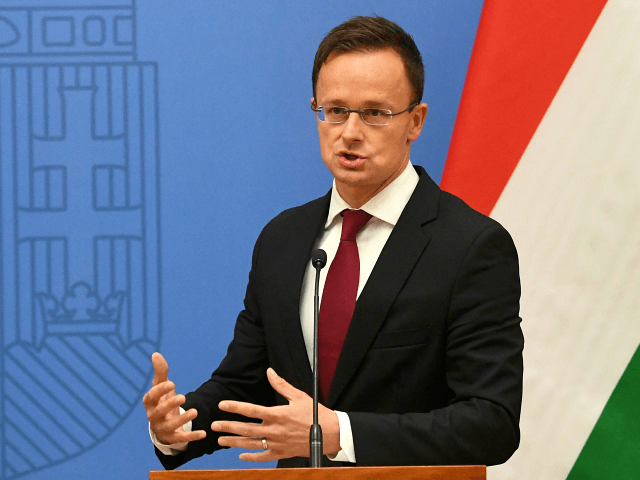Hungary has vetoed the European Union’s rejection of President Donald Trump’s peace plan for solving the Israeli-Palestinian conflict, on the basis it is more likely to succeed than any previous proposal, Hungarian Foreign Minister Péter Szijjártó told The Jerusalem Post during a visit to Israel on Monday.
“All of the plans put forward so far have failed,” he said. “If you look at the Trump plan, we do believe it has the most hope to be a basis of successful negotiations. That’s why we have vetoed the E.U. statement condemning the plan when it was published.”
Together with the Czech Republic and Austria, Hungary has also been vocal about its opposition to European threats to Israel if it goes through with its plan to apply its sovereignty to parts of the West Bank.
Szijjártó stopped short, however, of overtly expressing support for annexation.
“Let’s wait until Israel makes a decision,” he said. “Judging Israel on something that has not been done yet, on which there has been no decision made yet, doesn’t make sense. It’s very counterproductive.”
“We think that we should give [Trump’s] plan time and patience, to see if it works or not, instead of judging it upfront,” Szijjártó said.
Szijjártó also met with his Israeli counterpart, Gabi Ashkenazi, to discuss regional security and in particular Iran and its breaches of the 2015 Obama-led nuclear deal.
“We believe that the greatest threat to regional stability and peace is Iran,” Ashkenazi said in a statement following their meeting. “Israel will not allow Iran to have nuclear weapons, and we will not allow Iranian entrenchment on our borders.”
The world “must hold Iran accountable and act strongly against Iran’s malign activities,” Ashkenazi added.
Szijjártó said his country was “heavily against increasing the number of countries with nuclear weapons.”
“In case of a suspicion that a country would like to develop nuclear weapons, I think the toughest, strongest possible decisions and steps on behalf of the international community should come,” he said.
The E.U. must force Iran “to comply with its obligations,” Szijjártó said, but if it does not, “it’s a new situation.”
In remarks to the press following his meeting with Ashkenazi, Szijjártó compared the international community’s view of Israel with that of his own country.
“If there were a competition among countries of who is most attacked by the world media, Israel and Hungary would be among the top three for sure,” he said, explaining later to the Post that the “international liberal mainstream cannot digest that there are governments running patriotic policies, totally opposite to the liberal mainstream.”
Prime Minister Benjamin Netanyahu and his Hungarian counterpart, Viktor Orban, “are concentrating on their national interests,” Szijjártó said.
“As Trump says, ‘America first,’” he said. “We in Hungary say, ‘Hungary first,’ and we understand well when Prime Minister Netanyahu says, ‘Israel first.’”
The accusations that Orban and Netanyahu were pushing undemocratic policies are “untrue and unfair,” Szijjártó said, adding:
If we had not acted according to the will of the people, we wouldn’t have been reelected. The fact that we have been in office for 11 continuous years now – we didn’t win it in the lottery. The authorization was given to us by the people. One might not like what we do politically… I accept that there are different kinds of positions. But one thing must not be said, that it’s not democratic. It is democratic because it was based on the will of the people.
The Orban government has been accused of encouraging antisemitism by condemning Hungarian-American billionaire George Soros, whose organizations funded a university and liberal civil society groups in Hungary.
“When there are complaints about the government on the field of the fight against antisemitism, we cannot consider it any more than being politically motivated,” Szijjártó told the Post, noting Hungary has the largest Jewish community in Central Europe, and that unlike in most of the continent, in Budapest, synagogues and Jewish community events do not need armed guards.
“We have zero tolerance for antisemitism,” he said.

COMMENTS
Please let us know if you're having issues with commenting.